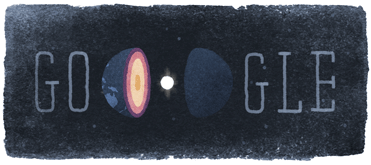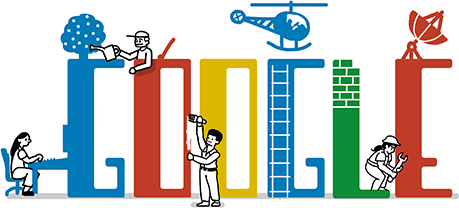Hope as first group pilgrims flies to Mecca.
WASHINGTON (CNN) -- CIA Director Michael Hayden on Tuesday faced lawmakers to explain why his agency destroyed videotapes showing agents using harsh interrogation techniques that critics say amount to torture.
Central Intelligence Agency Director Michael Hayden testified on Capitol Hill in Washington on Tuesday.
In addition to the hour he spent before the Senate Intelligence Committee Tuesday afternoon, Hayden is also scheduled to appear before a closed-door briefing before the House equivalent on Wednesday.
Hayden welcomed the chance, saying he was "very delighted to come on down and lay out the facts as we know them."
"It was a chance to lay out the narrative of what happened -- who did it, why the tapes were destroyed," Hayden later told reporters. He said lawmakers will also hear from "people with more knowledge of what happened."
The Justice Department and the CIA have launched an investigation.
Hayden disclosed both the existence and destruction of the tapes in a memo to CIA employees last week. U.S. officials said the recordings were made as "an internal check" on the CIA's use of interrogation techniques authorized in 2002 against suspected terrorists.
The interrogation tapes showed the use of the techniques on two al Qaeda suspects in 2002. The tapes were destroyed in 2005, "only after it was determined they were no longer of intelligence value and not relevant to any internal, legislative, or judicial inquiries," Hayden wrote.
One of the suspects, Abu Subayda, was "waterboarded" to get him to talk, and he yielded valuable information, a former CIA officer, John Kiriakou, on Tuesday told CNN. Watch Kiriakou discuss how he struggled morally with waterboarding »
Human rights groups consider waterboarding -- in which a prisoner is restrained and water poured over his mouth and nose to produce the sensation of drowning -- a form of torture dating back to the Spanish Inquisition.
Kiriakou, who was waterboarded as part of his CIA training, described the technique as "entirely unpleasant," and while he considered the practice "important" did not want to be associated with it. Kiriakou said participated in Zubayda's interrogation but not his waterboarding.
Sen. Kit Bond, the ranking Republican on the Intelligence Committee, said nothing he heard during Hayden's appearance indicated anything "illegal or unlawful" was done. The committee's Democratic chairman, Sen. Jay Rockefeller, told reporters, "We need to get to the bottom of it."
Don't Miss
The House Intelligence Committee's chairman, Silvestre Reyes, and ranking Republican Rep. Peter Hoekstra announced their own investigation of the matter Monday and disputed Hayden's account last week that the committee had been properly notified of the decision to destroy the tapes.
"Our investigation will review issues surrounding the destruction of videos, the CIA's failure to notify Congress of this important matter and related questions concerning the CIA's interrogation program," they wrote.
A U.S. government official said Tuesday the tapes were destroyed in November 2005 on the orders of Jose Rodriguez, the head of the CIA's National Clandestine Service, who retired in September. Lawyers for the NCS gave written approval for the move, the official said.
Government officials have said that CIA General Counsel John Rizzo opposed destroying the tapes and found out only after the fact as did then-CIA Director Porter Goss, a former chairman of the House Intelligence committee.
One former intelligence official told CNN that Rizzo was "not really in the loop" on the decision and was "upset" about that. The official called it "conceivable but unusual" that the tapes would have been destroyed without Rizzo's input on the matter.
The New York Times, also quoting an anonymous former intelligence official, reported Tuesday that the spy agency was never given a direct order not to destroy the tapes. But a senior administration official, also speaking on condition of anonymity, contradicted that assertion.
"They were told not to destroy the tapes," the official said. "It was fairly unequivocal and completely unanimous. Everyone thought destroying the tapes was a bad idea. They got an answer. They're splitting hairs in terms of whether they got an answer or were ordered. Were they told we disagreed with the decision? There's no doubt about that."
The White House has said President Bush does not recall being aware of the tapes until being told last week of the destruction. White House spokeswoman Dana Perino has declined further comment, citing the preliminary investigation.
Bush acknowledged in 2006 that top al Qaeda captives were being held in CIA custody and subjected to "alternative" interrogation techniques, which he insisted had saved American lives and did not amount to torture. His administration refuses to confirm the use of specific techniques.
The revelations about the tapes emerged as Congress is poised to eliminate an exception made in 2006 for the CIA to use interrogation techniques beyond the limits of the Army Field Manual, which prohibits torture or abuse of prisoners.
On Monday Senate Intelligence Committee member Russ Feingold, a Wisconsin Democrat, sent a letter to Attorney General Michael Mukasey asking the Justice Department to take a fresh look at the CIA program.
And the leaders of the Senate Judiciary Committee, Sens. Patrick Leahy, a Vermont Democrat, and Arlen Specter, a Pennsylvania Republican, called on Mukasey to explain the extent of the Justice Department's knowledge of the situation and involvement in the matter.
"When and how did department officials or attorneys first become aware of the existence of videotapes of detainee interrogations?" the senators asked. "Did the department evaluate the legality of the interrogation techniques used in the interrogations that were videotaped?"
Mukasey told reporters Tuesday that the inquiry was in the hands of Assistant Attorney General Kenneth Wainstein, who heads the Justice Department's new National Security Division. Despite scattered calls from Congress for appointment of a special prosecutor in the case, Mukasey said it's far too early to consider appointment of an outside investigator.
"I think the Justice Department is capable of doing whatever it appears needs to be done," he said. He called the question "the most hypothetical of hypotheticals" at this point. E-mail to a friend
CNN's Ed Henry, Pam Benson and Terry Frieden contributed to this report.
All About Central Intelligence Agency
















